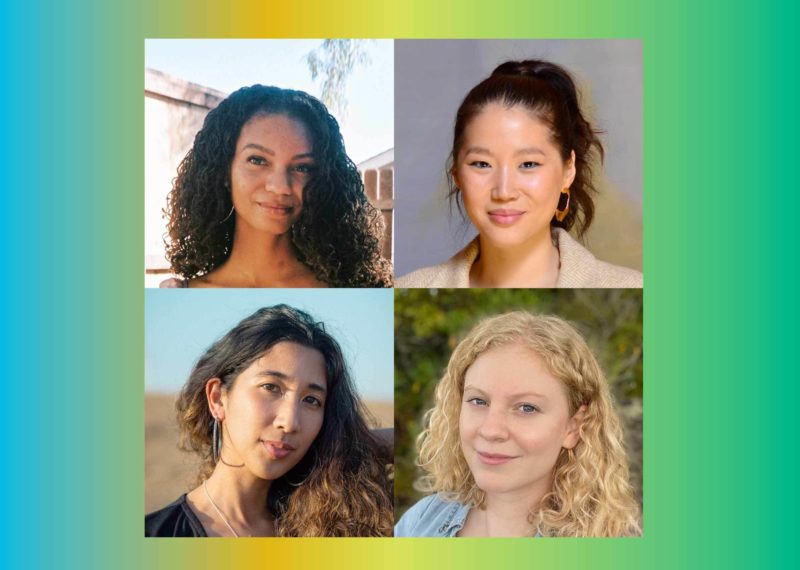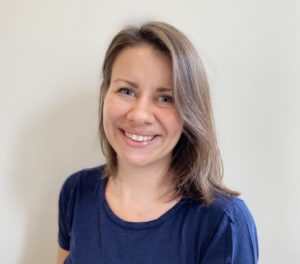For some climate activists, climate doom is the new climate denialism. Only about 10 percent of Americans deny human-made climate change is real, but many young people wonder if it’s too late to do anything about it. There’s a real danger the end result could be the same: inaction. “The doom-and-gloom narrative keeps people in despair or causes them to disengage,” says Sophia Li, a climate journalist and podcaster. “It’s not sustainable.”
Li and other climate influencers are using their platforms to talk about climate solutions—and build a more inclusive environmental movement. Last month, Pique Action and Harvard Chan C-CHANGE named Li among 16 climate creators to watch.
Nexus Media News spoke with Li and three other “climate creators”—”Intersectional Environmentalist” author Leah Thomas, TikTok-er Alaina Wood, and Brown Girl Green founder Kristy Drutman—about how they joined the climate movement, why shame-based motivation fails and finding solutions, even in anxious times.
These responses have been condensed and lightly edited for clarity.
Nexus Media News: What got you into the climate communication space?
Leah Thomas: I studied environmental science and policy, and I remember going back home to my family and not being able to communicate climate science in a way that was accessible. [I wondered], Why are these people in my life not getting pumped about climate? In 2020, I posted my intersectional environmentalist pledge, and suddenly, millions of people saw it.
Alaina Wood: When the pandemic hit, like so many other people, I downloaded TikTok. I started seeing people make outlandish claims, like, if you’re not 100% vegan or 100% zero-waste, you’re not a climate activist. I was like, wait a minute, that’s absolutely not true and that’s just scaring people away from the movement. So I made one video just ranting about the zero-waste movement. And I guess it resonated. [Editor’s note: it received more than 400,000 views].
Nexus Media News: How do you stay engaged with this work while taking care of your emotional and mental well-being?
Kristy Drutman: The important part is knowing that you are part of a wider ecosystem, and [not] everything is dependent on you. Even though this crisis is urgent, even though it feels like everything has to get done right now—which, in some ways, it does—it’s important to remember that this work is going to be done over the span of a lifetime. I think collaboration and community is where you actually get to address the anxiety around these things.
Leah Thomas: It’s good to take time away as necessary, and that’s the beauty of community. There are so many environmentalists—it’s okay if I have to sit out for a day or even a month. The movement goes on.
Nexus Media News: How do you avoid contributing to climate doom?
Kristy Drutman: I have experimented with making some really silly posts about depressing things. I guess it’s nihilistic humor, but people just need something to laugh about. But more importantly, I ask people how they are doing and post about self-care. It’s a balance between recognizing that I am a communicator but I’m also a human being.
I’ve also focused a lot more on solutions-based content and organizations that are working toward solutions and [may not] have the resources or support. I’m always thinking, how can we send more traffic signals to that work?
Sophia Li: The climate-alarmist narrative is unsustainable for both the movement and for the individual. Studies have shown the doom-and-gloom narrative keeps people in despair or [causes them] to disengage. It’s a coping mechanism.
If you talk to anyone on the climate frontlines, they don’t have that doom-and-gloom narrative because if they did, they would basically be saying, I don’t believe in the future of my home, my land, my family, where I’m from.
Nexus Media News: What do you see as your roles in combating misinformation or disinformation?
Alaina Wood: Pretty much my entire life now is debunking misinformation. I feel like it’s my duty as an environmental scientist, and also a climate communicator, to debunk misinformation because I know it ultimately hurts the movement and it’s hurting people in the process.
A lot of the misinformation I debunk I’ve been tagged in and sent by my audience; [they’ll ask] Hey, I don’t understand this— Is this right? I think it’s great that people feel comfortable enough to tag and talk to other creators—that’s just strengthening our movement as a whole.
Sophia Li: I think we have this societal view that it’s the climate deniers we’re fighting, but actually the U.S. has the most [deniers], and even here, it’s less than 10 percent of the population. It’s the climate delayers we should really be motivating.
I would not necessarily say climate misinformation is the biggest enemy. It’s more that there’s a lot of noise versus news, and people are distracted by the noise. They’re distracted by [calls for] individual action, like I need to be zero-waste or I need to be vegan when they should be focusing on changing the bigger systems in place and holding leaders accountable.
Nexus Media News: How do you deal with trolls?
Leah Thomas: There are a lot of people in the environmental space who do not care—and sometimes, like, violently resist having to care—about people of color in the context of environmentalism. I get so many comments that say that race and racism and bigotry should stay far over here and you should just care about saving the polar bears. You’d be surprised how many thousands of environmentalists are very mean to people of color in this space. So, I’m there to share statistics that link identity to environmental hazards and outcomes.
I won’t go back and forth with individuals or trolls on the internet, but I will share and uplift the research that’s been done for decades to show the correlations and gaps between race, identity and environmental outcomes.
Nexus Media News: Which of your posts or publications have had the biggest impact?
Kristy Drutman: The pieces that have had the biggest impact were those amplifying the voices and perspectives of people outside my background or my community. My theory going into Brown Girl Green was that that was going to be the most compelling content—people who, even in the face of hopelessness, are able to find hope and resilience and innovation.
Sophia Li: The first episode of [the climate TV show] “All of the Above” was all about this notion of if I’m just one person, what difference can I make? We asked [questions like] “Am I a bad person if I eat meat? Am I a bad person if I use plastic?” That was very controversial because sustainability has always been shown as this binary before. But sustainability is not binary, it’s a spectrum, and I think it actually hinders people [from] joining the sustainable movement when they think they have to be completely perfect.
Nexus Media News: How do you make your work accessible to wider audiences?
Alaina Wood: When I first started, I felt like I had to be in a white lab coat—very stern, serious, using a lot of scientific language. But then I realized, what do I personally want to see? Not somebody in a lab coat. I want to have a conversation—very personal and genuine conversations—with people. I’ve noticed that, at least for me, adding some sassiness into my videos goes over really well.
Sophia Li: I’m always trying to get people who are maybe not proactively seeking out climate coverage and helping them connect it to something that they already love, or are passionate about, or understand. If you love fashion, if you love food—all of these industries are going to be impacted by climate. You have to proactively meet people where they’re at.
Nexus Media News: How do you talk to climate skeptics?
Leah Thomas: Don’t, if you don’t want to. If someone is a climate skeptic, and they make you feel uncomfortable and want to fight you—you can pick your battles.
Instead, you can just show the way that you’re living. Like bringing reusable containers with you, talking about your electric car—just genuinely talking about something that you care about. They might be interested, and you’re not going into it like, Let me educate you on this topic.
Nexus Media News: But what about those who say individual actions aren’t enough?
Alaina Wood: I talk about individual collective action. It’s not, if you or everybody uses a metal straw, we’re going to save the climate, because that’s not true. It’s more that if individuals work together to hold governments, corporations and militaries accountable for their emissions and for their horrific environmental crimes, that’s how we’re going to get true collective action.
Nexus Media News: What about people struggling with feelings of hopelessness?
Sophia Li: I always compare the climate grief cycle to the normal grief cycle. There are seven stages of grief and usually we start out in denial. Like when you lose a loved one, it’s never just going to be okay or feel right. Some periods in this movement [you might] feel very motivated and optimistic, and then some days will feel very overwhelming. But knowing that emotion—that sadness or anger—is not long-term, as long as we can keep going back to the acceptance and the healing, is how I kind of deal with it.
Leah Thomas: Try to let them know about eco-anxiety and validate the feelings that they’re having. Show them some climate solutions, or just remind them that it’s okay to find joy.
This story was made possible by a grant from the Open Society Foundations.


